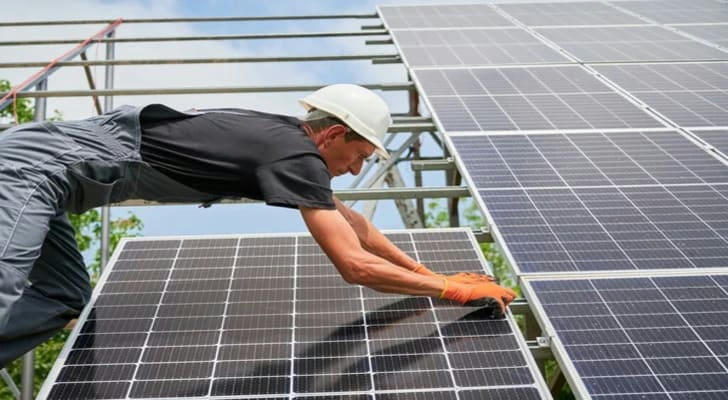Unlocking Opportunities: Does the Future Hold a Bright Career for Solar Panel Installers?
As global demand for renewable energy surges, the solar industry is experiencing rapid growth. Within this sector, solar panel installers play an indispensable role. Fueled by technological advancements and supportive policies, the career prospects for solar installers are expanding.

This article explores the profession’s salary and benefits, required skills, advantages, and current hiring trends in solar companies.
Understanding the Role of Solar Panel Installers
A. What Does a Solar Panel Installer Do?
Solar installers are vital contributors to the renewable energy landscape. Their responsibilities include assessing installation sites, designing panel layouts, and ensuring proper equipment setup and wiring. They also perform maintenance and troubleshoot technical issues to optimize system performance.
Beyond technical tasks, installers engage with clients to understand energy needs and budgets, recommend tailored solar solutions, and educate customers on system operations. Post-installation, they provide ongoing support, ensuring customer satisfaction and system efficiency.
B. Required Skills and Qualifications
To excel as a solar installer, a combination of technical expertise and physical stamina is essential:
Technical Knowledge*: Proficiency in electrical systems and mechanical aptitude for handling solar equipment.
Physical Fitness*: Ability to work outdoors in varying weather conditions, climb rooftops, and lift heavy equipment.
Problem-Solving*: Keen attention to detail to diagnose and resolve installation or maintenance challenges.
Communication Skills*: Clear client communication to explain technical concepts and build trust.
While formal education requirements are minimal (often a high school diploma), certifications like OSHA 10 or specialized solar training enhance employability.
Market Demand and Employment Outlook
1. Growth Trends in the Solar Industry
The solar sector is booming, driven by government incentives, technological innovation, and environmental awareness. The International Energy Agency (IEA) predicts global solar capacity will triple by 2030. Policies such as the U.S. federal Investment Tax Credit (ITC), which offers tax deductions for solar installations, further accelerate adoption.
2. Rising Demand for Installers
The U.S. Bureau of Labor Statistics forecasts a 22% job growth for solar installers over the next decade—far surpassing the average for other occupations. Regions with strong renewable energy commitments, such as California, Texas, and New York, are hotspots for employment opportunities. Certified professionals with hands-on experience are particularly sought after.
Benefits of Becoming a Solar Panel Installer
- Job Security: As nations transition to clean energy, demand for skilled installers ensures long-term career stability.
- Skill Development: The role combines electrical engineering, mechanical installation, and system maintenance, fostering versatile technical expertise.
- Competitive Earnings: Entry-level installers earn $18–$25 per hour, with experienced professionals or supervisors earning $60,000+ annually. Specialized roles in design or project management offer higher salaries.
- Career Advancement: Opportunities to progress into supervisory roles, technical consulting, or entrepreneurship as a solar contractor.

How to Apply for Solar Installer Positions
Job seekers can explore opportunities on platforms like ZipRecruiter or directly through solar companies. Below are notable employers currently hiring:
1. Sunergy (Cincinnati, Ohio)
A leading installer since 2005, Sunergy has completed over 16,000 residential projects across three states.
Pay: Crew members earn $1,000–$1,500 weekly; supervisors exceed $2,000.
Requirements:
- Ability to interpret manuals and use hand/power tools.
- Comfort working at heights.
- High school diploma (experience preferred).
2. EmPower Solar (Bethpage, New York)
This sustainability-focused firm offers hands-on training for full-time installers starting November 2024.
Pay: $22–$25/hour, with potential raises.
Benefits: Health coverage, retirement plans (4% 401k match), paid leave.
Requirements: OSHA 10 certification, reliability, teamwork skills, valid driver’s license.
3. Blue Raven Solar (Milwaukee, Wisconsin)
A rapidly expanding company recognized for its corporate culture and growth.
Pay: $45,000–$60,000 annually plus paid training.
Requirements: Ability to lift 60 lbs, rooftop work readiness (prior experience a plus).
Conclusion
The solar installation profession offers a promising pathway amid the global shift toward sustainability. With competitive pay, skill development, and upward mobility, it appeals to those seeking a meaningful, future-proof career. By acquiring relevant certifications and leveraging growing market demand, aspiring installers can secure a rewarding role in this dynamic industry.
For more information:Installers
